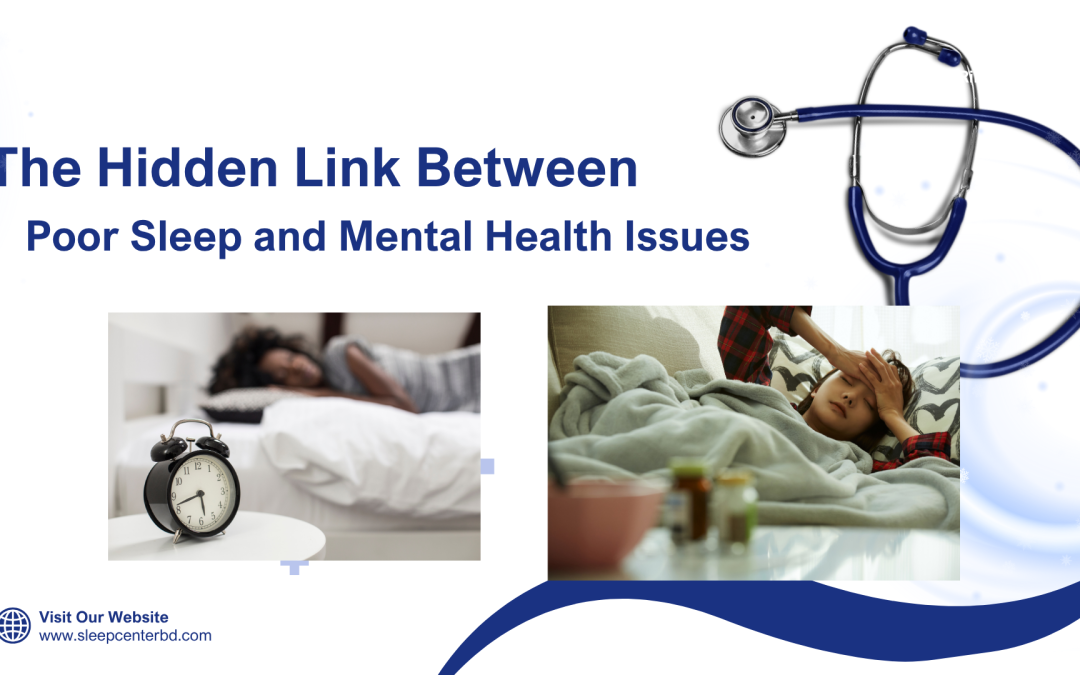1. Sleep and Mood
A good night’s sleep can brighten your outlook—while poor sleep often leads to irritability, moodiness, and emotional reactivity. Disrupting REM and deep sleep cycles makes it harder to regulate emotions, leaving us more sensitive to negative experiences.
2. Sleep’s Role in Anxiety
Insufficient sleep heightens the brain’s fear response in the amygdala and weakens its ability to evaluate threats rationally from the prefrontal cortex. This imbalance primes individuals for heightened anxiety and panic attacks.
3. Insomnia & Depression
Chronic insomnia (difficulty falling or staying asleep) is closely tied to depression. Sleep problems can precede depressive episodes and also worsen symptoms, including feelings of hopelessness, diminished motivation, and social withdrawal.
4. Sleep Deprivation & Stress
Lack of sleep escalates levels of cortisol—the stress hormone. Elevated cortisol disrupts emotional balance, weakens immune function, and fuels a vicious cycle: more stress leads to worse sleep, which leads to more stress.
5. How Sleep Heals the Brain
During sleep, the brain removes toxins, consolidates memories, balances neurotransmitters, and repairs neural pathways. These essential processes restore emotional resilience and mental clarity, acting like a reset for both mind and body.
6. Poor Sleep & Memory
Without adequate restorative sleep, the hippocampus struggles to encode and retrieve memories. This impairs both memory and concentration—commonly seen as “brain fog.” Over time, it can also contribute to cognitive decline.
7. Sleep Disorders & Mental Health
Conditions like sleep apnea, restless legs syndrome (RLS), and circadian rhythm disorders often co-occur with mental health issues:
- Sleep apnea can cause frequent awakenings and low oxygen, increasing risks for anxiety and depression.
- RLS causes uncomfortable sensations that disrupt sleep and elevate emotional distress.
- Shift work and jet lag disturb natural circadian rhythms, destabilizing mood and cognitive function.
8. Sleep & Mood Swings
Erratic sleep heightens emotional volatility. Teenagers, pregnant individuals, or those with mood disorders often experience amplified mood swings when their sleeping patterns are irregular. Consistent sleep helps stabilize emotions.
9. Sleep in Mental Health Treatment
Clinicians increasingly integrate sleep-focused strategies into mental health treatment. Cognitive-Behavioral Therapy for Insomnia (CBT-I), light therapy, and sleep hygiene coaching often accompany medication or psychotherapy to enhance overall recovery.
10. Tips for Better Sleep
Here’s how to improve your sleep hygiene and support mental well-being:
Habit | Why It Matters |
Keep a consistent sleep schedule | Regulates your circadian rhythm |
Create a relaxing bedtime ritual | Lowers cortisol, signals winding down |
Limit screen time before bed | Blue light interferes with melatonin |
Improve sleep environment | Dark, cool, quiet spaces promote deeper sleep |
Avoid caffeine & heavy meals late | Prevents midnight wake-ups or indigestion |
Exercise regularly | Promotes deeper slow-wave sleep (but not right before bed) |
Manage stress mindfully | Techniques like deep breathing or meditation lower nighttime stress |
Seek professional help | Tools like CBT-I or medical evaluation can address underlying sleep disorders |
💡 Final Thoughts
Sleep isn’t just a passive state—it’s essential for emotional regulation, mental recovery, and overall well-being. Prioritizing quality sleep is one of the most powerful and accessible strategies for supporting mental health. If you’re struggling with sleep or mood, remember: even small shifts in your routine—like setting a consistent bedtime or reducing evening screen-use—can yield significant improvements.

